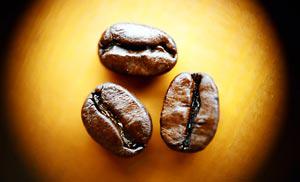1186
Coffee: benefit or harm?
Coffee in Russia
At the beginning of the seventeenth century Russian government to actively trade with the countries of the Near and Middle East, where the coffee was at that time already popular drink. In 1665 the court doctor Samuel Collins did Tsar Alexei Mikhailovich such an order: Boiled coffee, Persians and Turks know and usually after dinner ... there is a fair remedy for arrogance, runny nose and glavoboleny. 1665 probably should be regarded as the emergence of coffee in Russia, where the life-giving drink spreads slowly - prevented religious prejudices.
The decisive step in this direction was made by Peter I. When in the Netherlands, he became addicted to coffee and on his return to Russia introduced the custom of drinking it at assemblies. By order of Peter I were treated to coffee, even when entering the cabinet of curiosities. Then coffee became a supporter of Anna Ivanovna, and later - the Russian officers who have been in France during the War of 1812 Since then, the habit of drinking coffee has established itself in the grand living rooms, and coffee were attending a secular audience.
Today, interest in the coffee does not decrease, it is rich in choice. More and more people, regardless of age and social position of enjoying the coffee, amazing taste and flavor of the magic that gave rise to the present Coffeemania.

However, the debate about the harm or benefit of coffee, do not stop. Initially, it was believed that coffee good for men and bad for women, so for a long time women were forbidden to drink, or the wife should ask her husband's permission to enjoy a cup of coffee. With the development of science in general and medicine in particular, to clarify the truth, numerous studies have been conducted.
Following are the results of some large prospective studies of the last decade, which for many years involved large cohorts of people. Similar works meet the criteria of evidence-based medicine, and their findings put dot the i in disputes about coffee.
A bit of caffeine
The main active ingredient of coffee - caffeine (1, 3, 7 - Trimetileksantin) synonyms: saffeine, guaranin, theinum. This alkaloid contained in tea leaves, seeds, coffee, cola nuts. Get it and synthetically. By building and pharmacological properties similar to caffeine, theobromine and theophylline, but has a strong stimulating effect on the central nervous system and it is used primarily as a stimulant. Physiological characteristics of caffeine on the central nervous system have been studied I.Pavlovym and his colleagues, have shown that caffeine increases and regulate processes of excitation in the cerebral cortex. In appropriate doses, it enhances the positive conditioned reflexes, increases motor activity, mental and physical performance, oslablinet fatigue, drowsiness. Large doses it may however lead to depletion of neural cells.
Caffeine (and other psychoactive agents) depends largely on the type of higher nervous activity, however the dosing should take into account the individual characteristics of the nervous system. Caffeine oslablinet hypnotics, and narcotics, increases the reflex excitability of the spinal cord, stimulates the respiratory and vasomotor centers. Cardiac activity under the influence of caffeine increases, reducing myocardial become more intense, more frequent. When collaptoid state of shock and blood pressure under the influence of caffeine increases; with normal blood pressure significant changes were observed, as both the excitation of the vasomotor center and heart under the influence of caffeine dilates blood vessels of skeletal muscle and other organs (brain, heart, kidneys), but vessels of the abdominal organs (except kidney) are narrowed. Diuresis influenced caffeine slightly increased mainly - due to the reduced electrolyte reabsorption in the renal tubules. Caffeine reduces platelet aggregation, stimulates the secretory activity of the stomach.

According to current data, the mechanism of action of caffeine significant role played by its inhibitory effect on phosphodiesterase, which leads to the accumulation of intracellular cyclic adenosine monophosphate (AMP). It is believed that caffeine stimulation of gastric secretion is also related with the increase of cyclic AMP in the gastric mucosa. The neurochemical mechanism of the stimulating effect of caffeine significant role played by its ability to bind to specific (purine or adenosine) receptors in the brain, for which the endogenous ligand is a purine nucleoside - adenosine. It promotes the structural similarities and caffeine molecule adenosine.
Since adenosine as a factor oslablinyuschy excitation processes in the brain, replacing its caffeine leads to a stimulating effect. Prolonged use of caffeine, the formation of new brain cells in the adenosine receptors, and the effects of caffeine gradually oslablinetsya. However, the sudden cessation of caffeine adenosine takes all available receptors that can lead to increased braking events fatigue, sleepiness, depression and others. Applied caffeine (caffeine-sodium benzoate) in infectious and other diseases involving suppression of the central nervous system and the cardiovascular system, in case of poisoning with drugs and other poisons, depressing the central nervous system, vascular spasm in the brain (migraine, etc.), to improve mental and physical performance, eliminate sleepiness. [1]
Coffee bean contains on average (in g%): fat - 13, 9, digestible carbohydrates - 4, 1, caffeine (trimethylxanthine) - 1, 5, tannins - 5, 5 esters caffeic and quinic acid - 6, 5, citric acid - 1, trigonelline - 1, minerals and trace elements - 5, purine bases - 1, 2, oxalic acid - 0, 4; into it about 200 substances defined not by chemical analysis, and experienced tasters. Approximately 75% of the weight of raw coffee beans account for non-digestible polysaccharides [4].
Coffee and cardiovascular disease
One of the main effects of coffee on the cardiovascular system is a short-term increase in blood pressure and increased heart rate. On this basis, it was believed that coffee contributes to the development of cardiovascular disease, and is strictly forbidden to drink for people with hypertension, coronary heart disease (CHD) and other manifestations of atherosclerosis.
Hypertensive heart disease
Coffee long accused that it increases blood pressure. With the advent of decaffeinated coffee (CSC), suggested that he would not raise blood pressure, so they say, high blood pressure can drink is his. However R.Corti studies demonstrated that after intravenous administration of 250 mg caffeine actually observed a transient increase in blood pressure, but it appears only in individuals not drinking coffee altogether. At regular coffee drinkers increase in blood pressure after the administration of caffeine was observed. We regularly upotreblinyuschih coffee increases blood pressure after taking caffeine, and coffee or CSC; therefore, it can be assumed that for this increase in blood pressure are responsible other ingredients of coffee, not caffeine.
That coffee is indeed not guilty in the development of hypertension was confirmed in a large cohort of 1017 white males who M.Klag seen for 33 years. Consumption of 1 cup of coffee a day, systolic blood pressure increased by 0, 19 mm Hg. Art., and diastolic - to 0, 27 mm Hg. Art. (family history, body mass index, cigarette smoking, alcohol consumption and physical activity were taken into account).
Compared to non upotreblinyuschimi coffee in the coffee increasingly raised blood pressure throughout the observation, but it is associated with the consumption of 5 cups a day or more (based on the risk factors mentioned, this association is not statistically significant). After years of observation, the authors concluded that coffee consumption is associated with a very small increase in blood pressure, which apparently plays a very minor role in the development of hypertension.

Moreover, in the recommendations of the European Society of Cardiology, the European Society for the Study of Atherosclerosis, the European Society of Hypertension, ground and instant coffee is one of the recommended products in the lipid-lowering diet. However, it is not recommended to drink coffee, brewed in Turkish. Professor L.Lazebnik et al. Article systolic hypertension in the elderly supported this position.
Coronary heart disease
For a long time it was believed that coffee is bad for the heart and can cause coronary heart disease. A study W.Willett 10-year prospective study (1980-1990) made it possible to establish the truth. In the United States were surveyed 85,777 nurses aged 34-59 years. At the beginning of the study, all the women were practically healthy, coronary heart disease, malignant tumors and acute cerebrovascular accident they were absent. Over the 10-year observation period documented 712 cases of coronary heart disease. The relative risk of coronary heart disease in women, upotreblinvshih 1980 during the day 6 cups of caffeine-containing beverages, and more, was 0, 95 from that of those who do not upotreblinl. Moreover, there were no risks, depending on the sources of caffeine, including tea and chocolate. The risk of developing coronary heart disease was not significantly increased the consumption of CSC in combination with smoking and other factors. Thus, research has proven that coffee consumption is not a major cause of coronary heart disease in subjects.
Coffee and cancer
For many years, it was thought that coffee can cause cancer of the pancreas, colon and rectum. However, subtle biochemical studies in recent years have refuted this claim and confirmed the results of epidemiological studies. Experts Research Center Nestlé (Switzerland) S.Cavin proven in animal and human cells, derivatives of coffee have anticarcinogenic properties and reduce the activity of some carcinogens by strengthening the antioxidant defenses and inhibition of activation of carcinogens. Conclusions biochemists confirmed by large epidemiological studies.
Italian scientists A.Tavani studied the link between coffee and tea consumption and the risk of developing cancer of the rectum and colon from 3530 cases and 7057 control subjects. A statistically significant association between coffee consumption and the risk of colon cancer is not established; Conversely, it appears that the coffee protects against this disease when consumed it in an amount of 3 or more times a day.
K.Michels examined the association between consumption of coffee, tea, caffeine and breast cancer in a cohort of Swedish mammography screening held 59,036 Swedish women aged 40-76 years. It is known that the Swedes are the biggest consumers of coffee in the world per capita. According to the study, the consumption of coffee, tea and caffeine is not associated with the frequency of breast cancer.
Coffee and CNS
What Coffee beneficial effect on the central nervous system, improves mental and physical performance, improves mood, has long been known. But studies of the last decade have revealed another interesting side effect of coffee on the human body. I.Kawashi examined the relationship between coffee consumption and the incidence of suicide among women, watching for 10 years in a prospective cohort study of 86,625 nurses aged 34-59 years with no coronary artery disease, stroke or cancer. Use this gradation frequency of coffee consumption: almost never; 1-3 cups per month; 2-4 cups per week; from 5-6 cups per week to one cup per day; 2-3 cups a day; 4-6 cups per day over 6 cups daily.
The results showed that people who drink coffee, the risk of suicide is lower than that of those who do not drink. With increasing doses of coffee decreased the risk even more. This trend remained unchanged after controlling for factors such as smoking, drinking, drug use, marital status and stress.
It was found that for women, upotreblinyuschih coffee, have higher thresholds of stress, including fewer cases of hypertension, diabetes and hypercholesterolemia, they are less likely to take drugs such as cimetidine, diazepam, phenothiazine and methyldopa.
Inverse relationship between daily coffee consumption and risk of suicide also found during the 8-year follow-up of 128 934 persons in the framework of the Kaiser ongoing health programs.
The beneficial effects of coffee on the central nervous system and, accordingly, the mood and the effectiveness of assignments C.Bricee was studied in a double-blind, placebo-controlled experiment. Subjects drank either coffee containing 65 mg of caffeine, or the CSC, and then in the range of 1-4 hours was assessed their effectiveness. According to the findings of researchers, caffeine increases concentration, improves the performance of simple or cognitive tasks that require complex approach and choice of solutions.
At the beginning of the seventeenth century Russian government to actively trade with the countries of the Near and Middle East, where the coffee was at that time already popular drink. In 1665 the court doctor Samuel Collins did Tsar Alexei Mikhailovich such an order: Boiled coffee, Persians and Turks know and usually after dinner ... there is a fair remedy for arrogance, runny nose and glavoboleny. 1665 probably should be regarded as the emergence of coffee in Russia, where the life-giving drink spreads slowly - prevented religious prejudices.
The decisive step in this direction was made by Peter I. When in the Netherlands, he became addicted to coffee and on his return to Russia introduced the custom of drinking it at assemblies. By order of Peter I were treated to coffee, even when entering the cabinet of curiosities. Then coffee became a supporter of Anna Ivanovna, and later - the Russian officers who have been in France during the War of 1812 Since then, the habit of drinking coffee has established itself in the grand living rooms, and coffee were attending a secular audience.
Today, interest in the coffee does not decrease, it is rich in choice. More and more people, regardless of age and social position of enjoying the coffee, amazing taste and flavor of the magic that gave rise to the present Coffeemania.

However, the debate about the harm or benefit of coffee, do not stop. Initially, it was believed that coffee good for men and bad for women, so for a long time women were forbidden to drink, or the wife should ask her husband's permission to enjoy a cup of coffee. With the development of science in general and medicine in particular, to clarify the truth, numerous studies have been conducted.
Following are the results of some large prospective studies of the last decade, which for many years involved large cohorts of people. Similar works meet the criteria of evidence-based medicine, and their findings put dot the i in disputes about coffee.
A bit of caffeine
The main active ingredient of coffee - caffeine (1, 3, 7 - Trimetileksantin) synonyms: saffeine, guaranin, theinum. This alkaloid contained in tea leaves, seeds, coffee, cola nuts. Get it and synthetically. By building and pharmacological properties similar to caffeine, theobromine and theophylline, but has a strong stimulating effect on the central nervous system and it is used primarily as a stimulant. Physiological characteristics of caffeine on the central nervous system have been studied I.Pavlovym and his colleagues, have shown that caffeine increases and regulate processes of excitation in the cerebral cortex. In appropriate doses, it enhances the positive conditioned reflexes, increases motor activity, mental and physical performance, oslablinet fatigue, drowsiness. Large doses it may however lead to depletion of neural cells.
Caffeine (and other psychoactive agents) depends largely on the type of higher nervous activity, however the dosing should take into account the individual characteristics of the nervous system. Caffeine oslablinet hypnotics, and narcotics, increases the reflex excitability of the spinal cord, stimulates the respiratory and vasomotor centers. Cardiac activity under the influence of caffeine increases, reducing myocardial become more intense, more frequent. When collaptoid state of shock and blood pressure under the influence of caffeine increases; with normal blood pressure significant changes were observed, as both the excitation of the vasomotor center and heart under the influence of caffeine dilates blood vessels of skeletal muscle and other organs (brain, heart, kidneys), but vessels of the abdominal organs (except kidney) are narrowed. Diuresis influenced caffeine slightly increased mainly - due to the reduced electrolyte reabsorption in the renal tubules. Caffeine reduces platelet aggregation, stimulates the secretory activity of the stomach.

According to current data, the mechanism of action of caffeine significant role played by its inhibitory effect on phosphodiesterase, which leads to the accumulation of intracellular cyclic adenosine monophosphate (AMP). It is believed that caffeine stimulation of gastric secretion is also related with the increase of cyclic AMP in the gastric mucosa. The neurochemical mechanism of the stimulating effect of caffeine significant role played by its ability to bind to specific (purine or adenosine) receptors in the brain, for which the endogenous ligand is a purine nucleoside - adenosine. It promotes the structural similarities and caffeine molecule adenosine.
Since adenosine as a factor oslablinyuschy excitation processes in the brain, replacing its caffeine leads to a stimulating effect. Prolonged use of caffeine, the formation of new brain cells in the adenosine receptors, and the effects of caffeine gradually oslablinetsya. However, the sudden cessation of caffeine adenosine takes all available receptors that can lead to increased braking events fatigue, sleepiness, depression and others. Applied caffeine (caffeine-sodium benzoate) in infectious and other diseases involving suppression of the central nervous system and the cardiovascular system, in case of poisoning with drugs and other poisons, depressing the central nervous system, vascular spasm in the brain (migraine, etc.), to improve mental and physical performance, eliminate sleepiness. [1]
Coffee bean contains on average (in g%): fat - 13, 9, digestible carbohydrates - 4, 1, caffeine (trimethylxanthine) - 1, 5, tannins - 5, 5 esters caffeic and quinic acid - 6, 5, citric acid - 1, trigonelline - 1, minerals and trace elements - 5, purine bases - 1, 2, oxalic acid - 0, 4; into it about 200 substances defined not by chemical analysis, and experienced tasters. Approximately 75% of the weight of raw coffee beans account for non-digestible polysaccharides [4].
Coffee and cardiovascular disease
One of the main effects of coffee on the cardiovascular system is a short-term increase in blood pressure and increased heart rate. On this basis, it was believed that coffee contributes to the development of cardiovascular disease, and is strictly forbidden to drink for people with hypertension, coronary heart disease (CHD) and other manifestations of atherosclerosis.
Hypertensive heart disease
Coffee long accused that it increases blood pressure. With the advent of decaffeinated coffee (CSC), suggested that he would not raise blood pressure, so they say, high blood pressure can drink is his. However R.Corti studies demonstrated that after intravenous administration of 250 mg caffeine actually observed a transient increase in blood pressure, but it appears only in individuals not drinking coffee altogether. At regular coffee drinkers increase in blood pressure after the administration of caffeine was observed. We regularly upotreblinyuschih coffee increases blood pressure after taking caffeine, and coffee or CSC; therefore, it can be assumed that for this increase in blood pressure are responsible other ingredients of coffee, not caffeine.
That coffee is indeed not guilty in the development of hypertension was confirmed in a large cohort of 1017 white males who M.Klag seen for 33 years. Consumption of 1 cup of coffee a day, systolic blood pressure increased by 0, 19 mm Hg. Art., and diastolic - to 0, 27 mm Hg. Art. (family history, body mass index, cigarette smoking, alcohol consumption and physical activity were taken into account).
Compared to non upotreblinyuschimi coffee in the coffee increasingly raised blood pressure throughout the observation, but it is associated with the consumption of 5 cups a day or more (based on the risk factors mentioned, this association is not statistically significant). After years of observation, the authors concluded that coffee consumption is associated with a very small increase in blood pressure, which apparently plays a very minor role in the development of hypertension.

Moreover, in the recommendations of the European Society of Cardiology, the European Society for the Study of Atherosclerosis, the European Society of Hypertension, ground and instant coffee is one of the recommended products in the lipid-lowering diet. However, it is not recommended to drink coffee, brewed in Turkish. Professor L.Lazebnik et al. Article systolic hypertension in the elderly supported this position.
Coronary heart disease
For a long time it was believed that coffee is bad for the heart and can cause coronary heart disease. A study W.Willett 10-year prospective study (1980-1990) made it possible to establish the truth. In the United States were surveyed 85,777 nurses aged 34-59 years. At the beginning of the study, all the women were practically healthy, coronary heart disease, malignant tumors and acute cerebrovascular accident they were absent. Over the 10-year observation period documented 712 cases of coronary heart disease. The relative risk of coronary heart disease in women, upotreblinvshih 1980 during the day 6 cups of caffeine-containing beverages, and more, was 0, 95 from that of those who do not upotreblinl. Moreover, there were no risks, depending on the sources of caffeine, including tea and chocolate. The risk of developing coronary heart disease was not significantly increased the consumption of CSC in combination with smoking and other factors. Thus, research has proven that coffee consumption is not a major cause of coronary heart disease in subjects.
Coffee and cancer
For many years, it was thought that coffee can cause cancer of the pancreas, colon and rectum. However, subtle biochemical studies in recent years have refuted this claim and confirmed the results of epidemiological studies. Experts Research Center Nestlé (Switzerland) S.Cavin proven in animal and human cells, derivatives of coffee have anticarcinogenic properties and reduce the activity of some carcinogens by strengthening the antioxidant defenses and inhibition of activation of carcinogens. Conclusions biochemists confirmed by large epidemiological studies.
Italian scientists A.Tavani studied the link between coffee and tea consumption and the risk of developing cancer of the rectum and colon from 3530 cases and 7057 control subjects. A statistically significant association between coffee consumption and the risk of colon cancer is not established; Conversely, it appears that the coffee protects against this disease when consumed it in an amount of 3 or more times a day.
K.Michels examined the association between consumption of coffee, tea, caffeine and breast cancer in a cohort of Swedish mammography screening held 59,036 Swedish women aged 40-76 years. It is known that the Swedes are the biggest consumers of coffee in the world per capita. According to the study, the consumption of coffee, tea and caffeine is not associated with the frequency of breast cancer.
Coffee and CNS
What Coffee beneficial effect on the central nervous system, improves mental and physical performance, improves mood, has long been known. But studies of the last decade have revealed another interesting side effect of coffee on the human body. I.Kawashi examined the relationship between coffee consumption and the incidence of suicide among women, watching for 10 years in a prospective cohort study of 86,625 nurses aged 34-59 years with no coronary artery disease, stroke or cancer. Use this gradation frequency of coffee consumption: almost never; 1-3 cups per month; 2-4 cups per week; from 5-6 cups per week to one cup per day; 2-3 cups a day; 4-6 cups per day over 6 cups daily.
The results showed that people who drink coffee, the risk of suicide is lower than that of those who do not drink. With increasing doses of coffee decreased the risk even more. This trend remained unchanged after controlling for factors such as smoking, drinking, drug use, marital status and stress.
It was found that for women, upotreblinyuschih coffee, have higher thresholds of stress, including fewer cases of hypertension, diabetes and hypercholesterolemia, they are less likely to take drugs such as cimetidine, diazepam, phenothiazine and methyldopa.
Inverse relationship between daily coffee consumption and risk of suicide also found during the 8-year follow-up of 128 934 persons in the framework of the Kaiser ongoing health programs.
The beneficial effects of coffee on the central nervous system and, accordingly, the mood and the effectiveness of assignments C.Bricee was studied in a double-blind, placebo-controlled experiment. Subjects drank either coffee containing 65 mg of caffeine, or the CSC, and then in the range of 1-4 hours was assessed their effectiveness. According to the findings of researchers, caffeine increases concentration, improves the performance of simple or cognitive tasks that require complex approach and choice of solutions.























